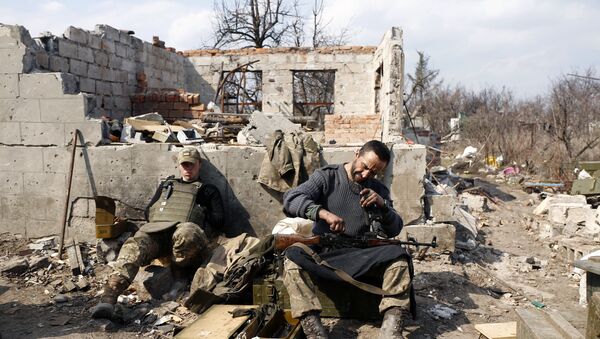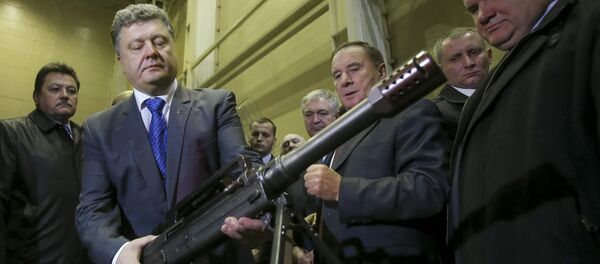DONETSK (Sputnik) – The International Committee of the Red Cross (ICRC) is ready to broker talks between the Ukrainian government and Donbass forces on the creation of safe zones in the east of the country, the charity’s Donetsk office chief Michel Saad told Sputnik Friday.
"The ICRC had proposed the creation of the safety zones since 2016… We continue to raise the importance of safeguarding the critical infrastructure from military activities. We are and remain available to discuss with all parties concerned about this concept, as well as the localization, the perimeter and to act as a neutral intermediary if agreed," Saad said.
The ICRC representative stressed that safe zones must include such critical infrastructure sites as, in particular, the Verkhnekalmiusskaya Filtration Station, the Donetsk Filtration Plant, the local network of pipelines, as well as main water pumps in the region.
The Donetsk authorities have repeatedly accused the Ukrainian military of shelling water facilities in the area.
The Donbass conflict erupted in April 2014 as a local counter-reaction to the West-sponsored Maidan coup in Kiev that had toppled President Viktor Yanukovych in February. Residents of the Donetsk and Lugansk regions held independence referendums and proclaimed the People's Republics of Donetsk and Lugansk. Kiev has since been conducting a military operation, encountering stiff local resistance.
On Wednesday, the Trilateral Contact Group on Ukraine agreed on the ceasefire during the time of harvesting starting from June 24, the truce should last until August 31. The decision was later confirmed by the representatives of the DPR and the LPR, Ukrainian envoy Leonid Kuchma's spokeswoman Daria Olifer and special representative of the Organization for Security and Co-operation in Europe (OSCE) Chairperson-in-Office in Ukraine Martin Sajdik.




